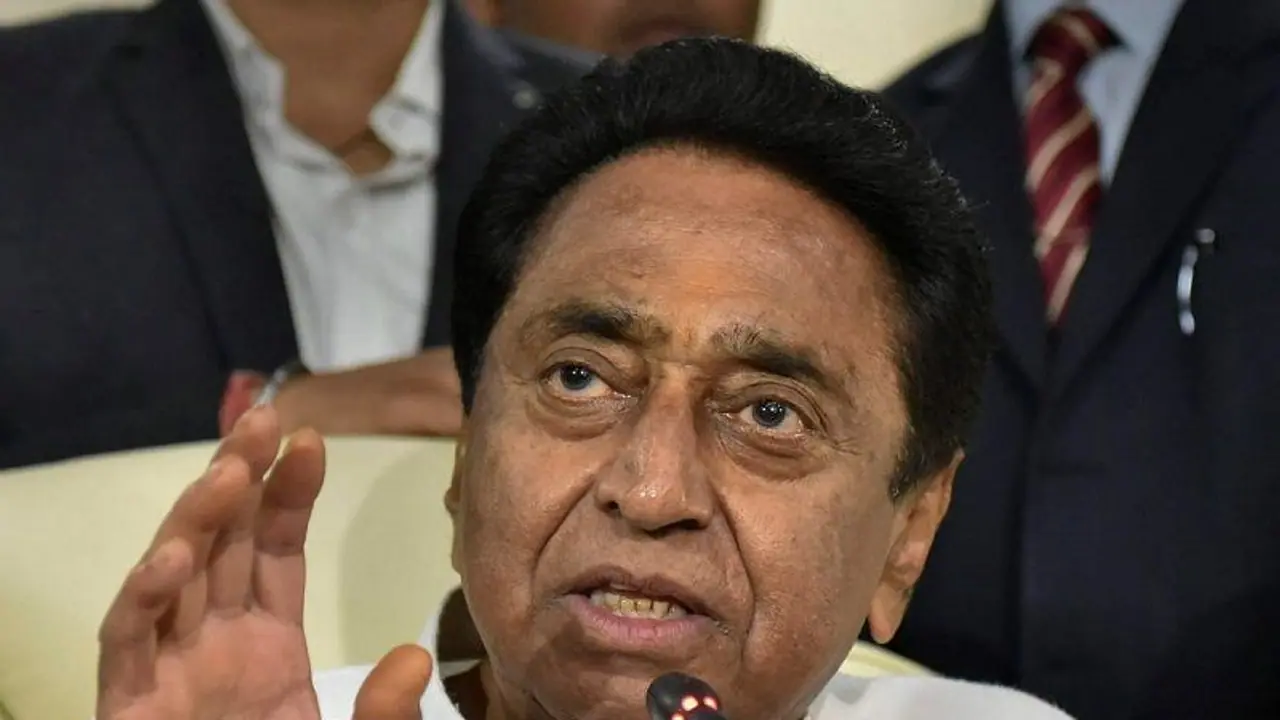In Madhya Pradesh, the hard reality is that not more than six or seven of the ministers have any worthwhile experience. Predictably enough, most of the plum portfolios have gone to chief minister Kamal Nath's own supporters and that of Digvijaya Singh who has emerged as the backbone of the government
Bhopal: The prompt decision of the Kamal Nath regime in Madhya Pradesh to cave in to BSP supremo Mayawati's threat to withdraw support unless cases against her party workers were immediately withdrawn was an early indicator that the survival of the new government rests on a delicate power balance, both externally and internally.
With the new Assembly set to convene on January 7 for a four-day session, the battle lines should become clearer should the BJP decide to contest the Speaker's election.
Two short of a simple majority (116) in the 230-member Assembly, the Congress was compelled to grant a Cabinet berth to one of the four victorious rebels, thereby ensuring that it touched the half-way mark.
Also read: CM Kamal Nath wants to see cows in shelter and not on roads: Saffronisation of Congress?
Now take away the vote of the elected Speaker and the ruling regime is back to being two short. Which is why it is almost certain that the other three rebels, elected as independents, will have to be accommodated either as parliamentary secretaries or heads of corporations.
In fact, the two BSP MLAs and the lone SP legislator will in all probability have to be given their pound of flesh to keep both Mayawati and Akhilesh Yadav in good humour and neutralise any attempt to blackmail the government in the future.
Ironically enough, though the ruling Congress may be skating on thin ice, this very brittleness may also be the reason why it may survive against all odds given the imperative to perform or perish. And chief minister Kamal Nath is just the right man to keep the balance of power evenly tipped. His formidable PR skills will prove handy. Only he could have thought of appointing a 28-member ministry with each member of Cabinet rank regardless of experience or ability: a singular record of sorts. Swept aside in one stroke was the likelihood of heartburn or factional squabbles.
The hard reality is that not more than six or seven of the ministers have any worthwhile experience. Predictably enough, most of the plum portfolios have gone to the chief minister's own supporters and that of Digvijaya Singh who has emerged as the backbone of the government.
Also read: Decades after Vajpayee restored Nehru's portrait, Congress removes Modi's from MP circuit house
The Raja of Raghogarh may have privately wanted to get his 32-year-old son, Jaivardhan Singh (JV), appointed as finance minister. The logic being that as a post graduate in public administration (with specialisation in micro-financing) from Columbia University, he was eminently qualified for the job.
Going by the grapevine the move was shot down by AICC chief Rahul Gandhi under pressure from a sulking Jyotiraditya Scindia after being outflanked by the Kamal-Diggy duo in the power sharing arithmetic. Had Diggy Raja succeeded in getting finance for his son, he would almost certainly have been seen as a parallel power centre. JV was given urban development instead, not bad for a first time minister. Another Diggy kin who pocketed a key portfolio (energy) is nephew Priyavrat Singh, raja of Khilchipur (Rajgarh).
As things stand, however, it is Kamal Nath who has the slight edge in the power stakes, which is as it should be. But Diggy Raja will be his guiding light because no one understands the state's politics and its players as well as he. While home, industry, PR (read media management) will be run by the chief minister's men, even finance for all practical purposes will be his baby. The finance minister (Tarun Bhanot) though a Kamal Nath loyalist is both a tyro as well as a square peg in a round hole. PWD too will be run by his long-time man Friday (Sajjan Singh Verma). Diggy loyalists, on their part, will be running energy, panchayat, rural development, and commercial tax, leaving Scindia followers with road transport, revenue, and health.
The first decisions of the new regime have been a mix of the good and downright bad. Sanctioning the state's overworked cops a weekly off has gone down well with the force. Another is the move to merge the dysfunctional department of happiness with the directorate of religious trusts and endowments and the Pilgrimage and Fair Authority. The resulting new department will be called the new department of spirituality (adhyatma). Unlike the Anand Mantralaya, 'Adhyatma' will have a clear mandate and guidelines.
Thankfully, the unintended ban on the monthly singing of Vande Mataram in the central secretariat has since been withdrawn. What, however, may cost the Congress electorally is the move to put on hold the pension of those who had had served jail sentences under the Maintenance of Internal Security Act (MISA) during the hated Emergency. The pension scheme was introduced by the BJP more than a decade ago.
Still worse is the planned move to extend the farmer loan waiver deadline till December 2018 instead of the earlier March 2018. This will only add to the woes of the already depleted state exchequer.
